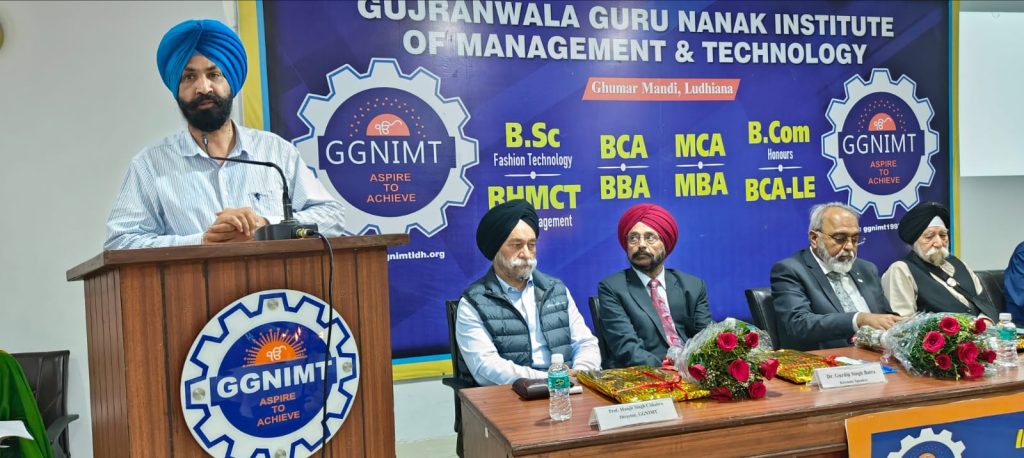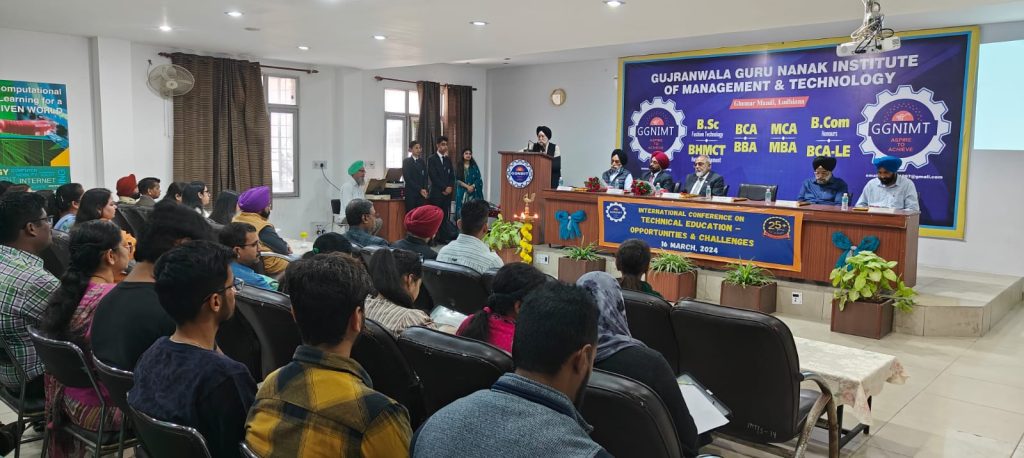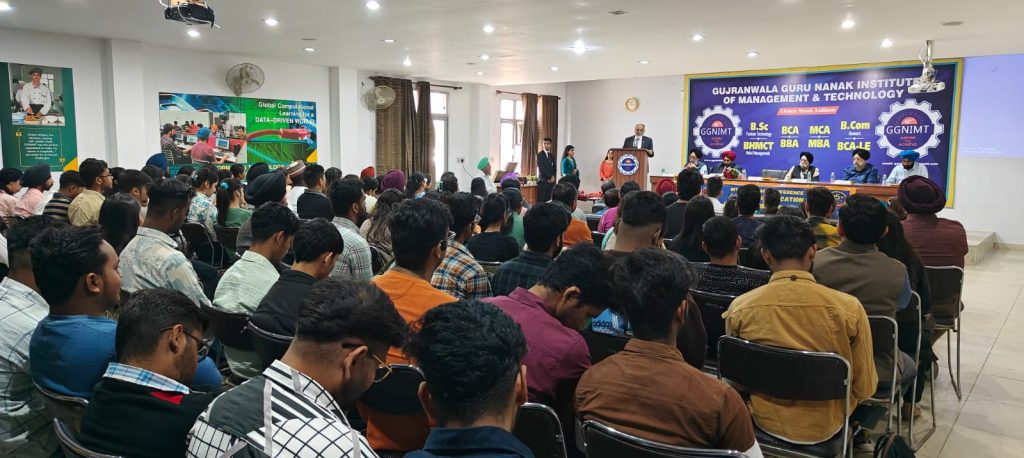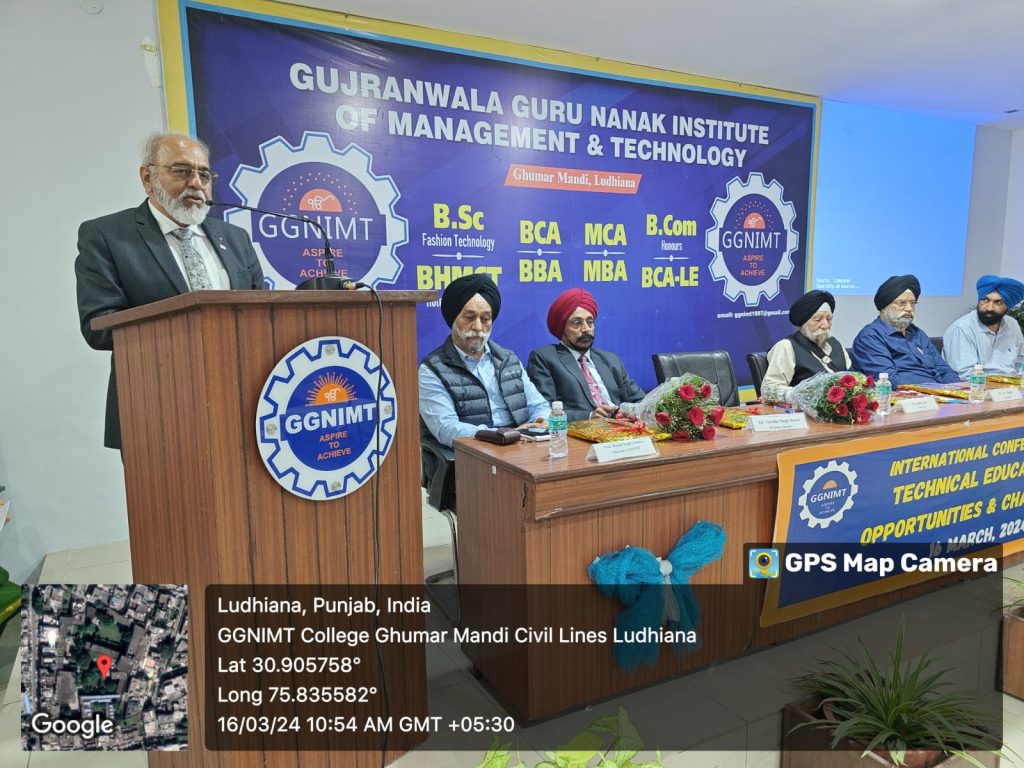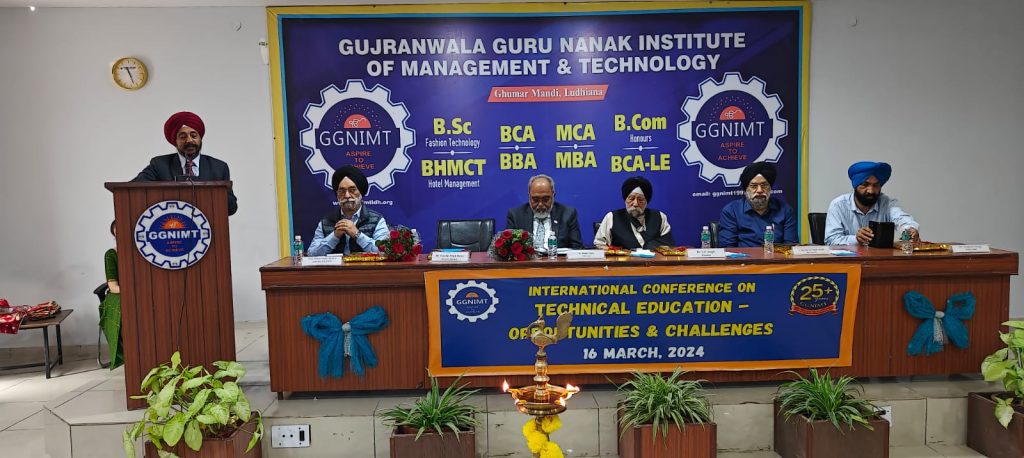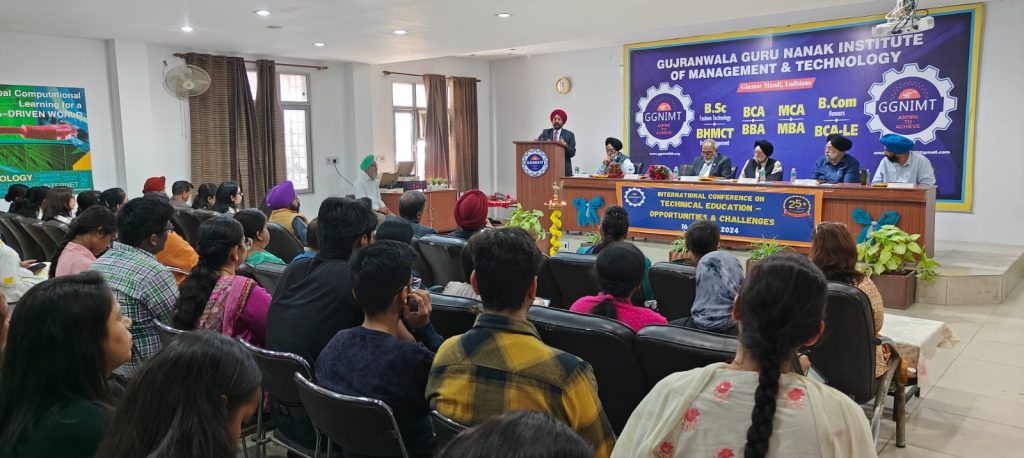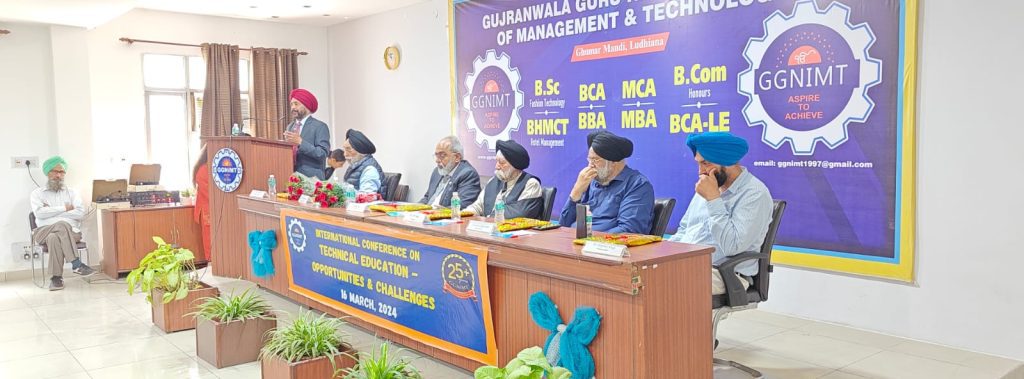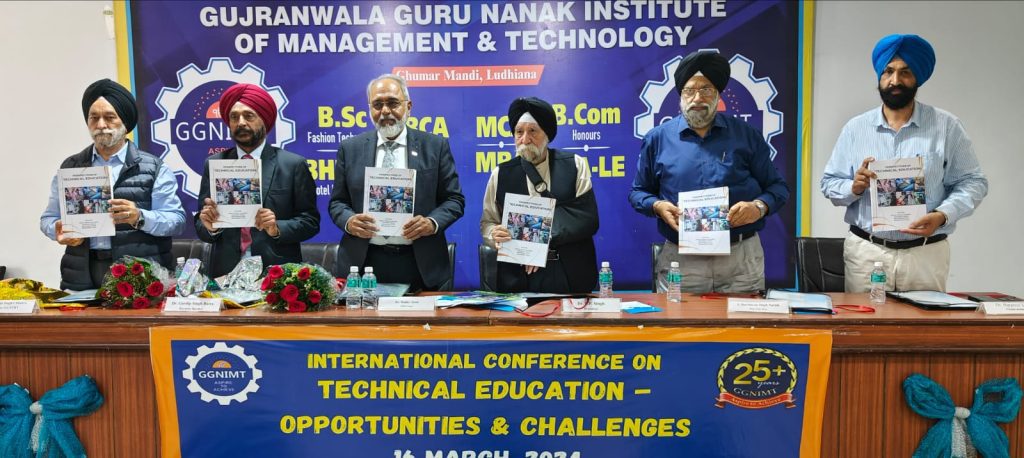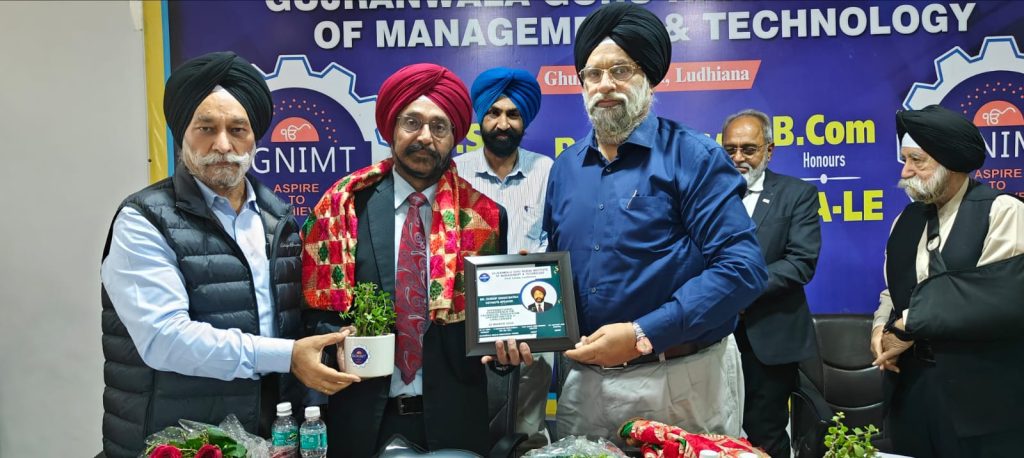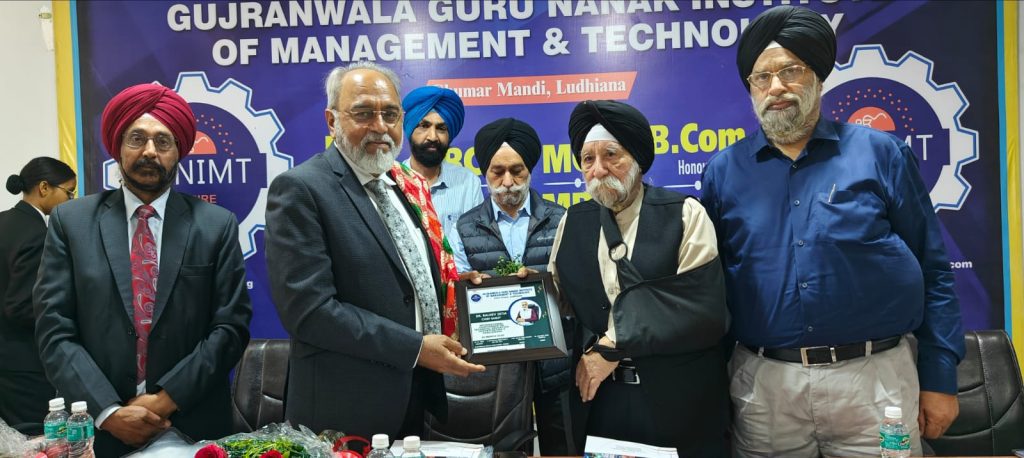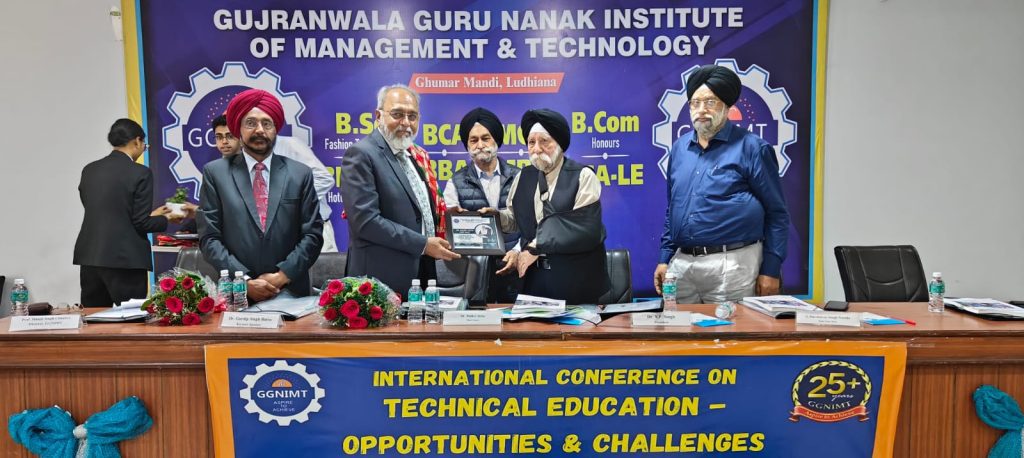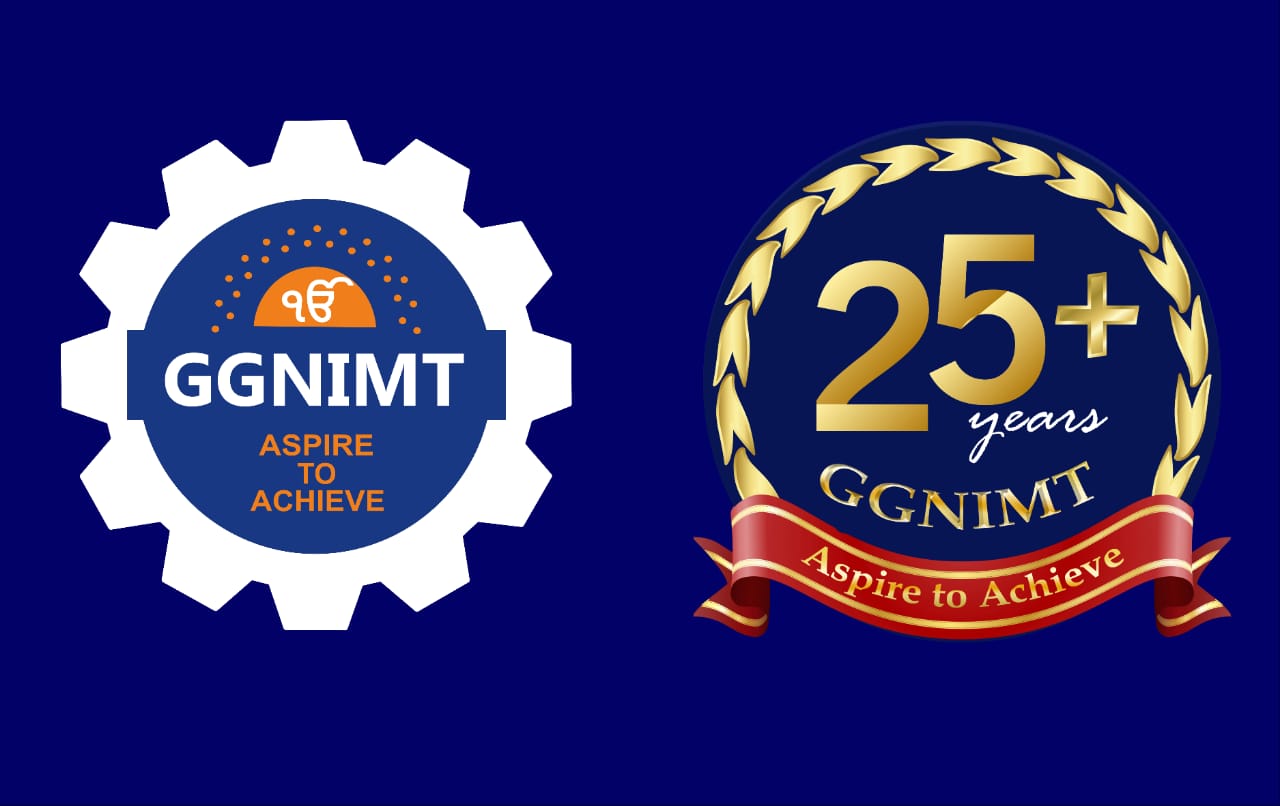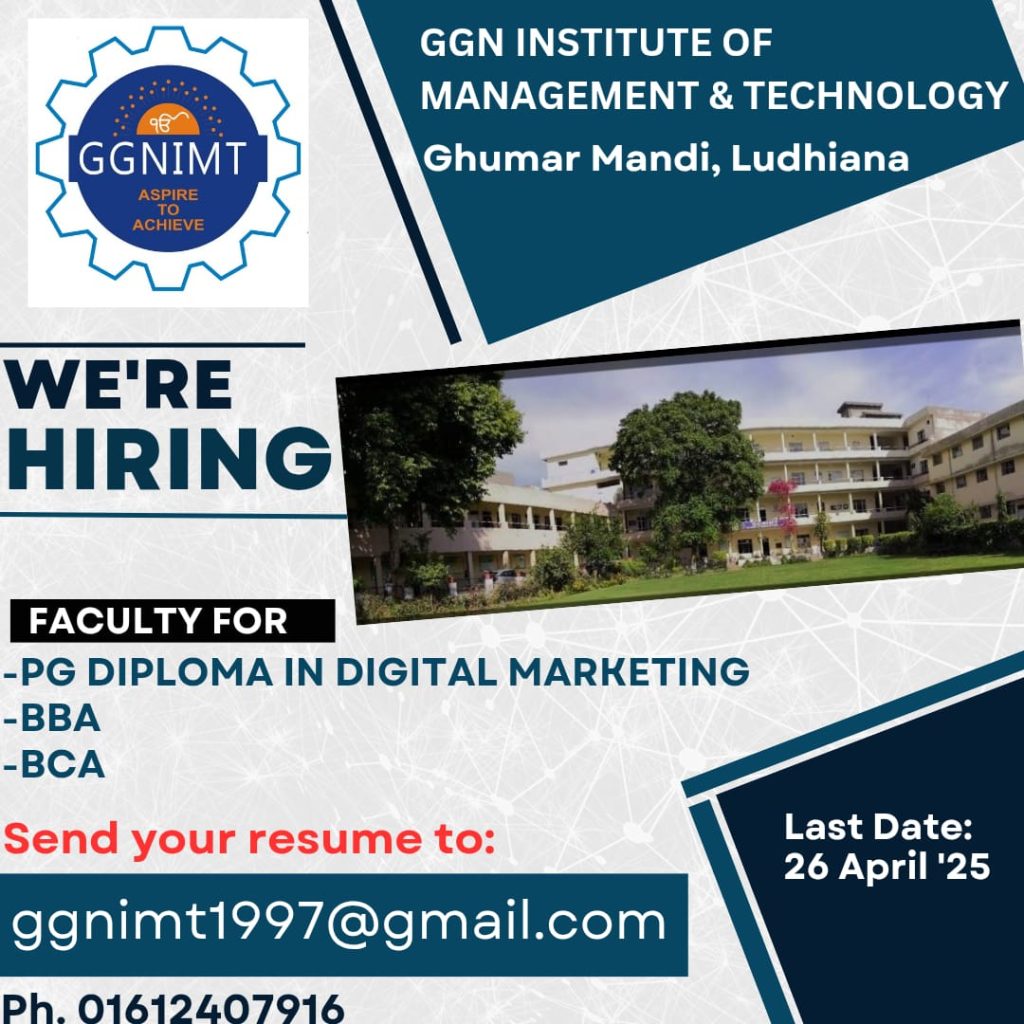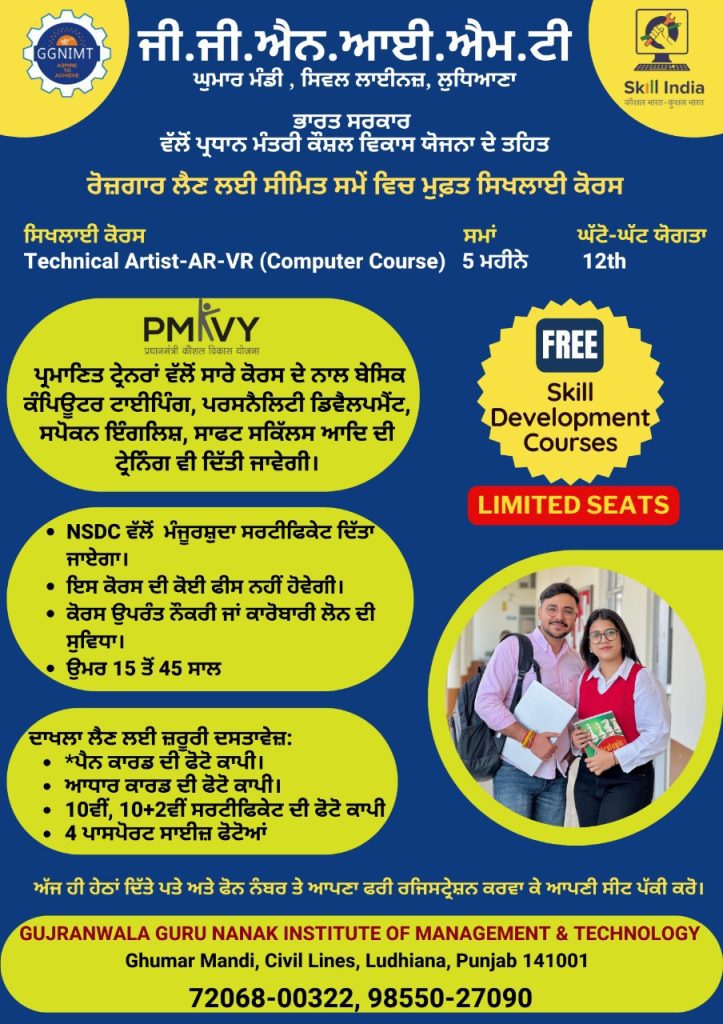Gujranwala Guru Nanak Institute of Management & Technology (GGNIMT), Ghumar Mandi organized its 4th International Conference on “Technical Education- opportunities and challenges”. More than 60 researchers from all across the country and abroad participated in the conference and presented their research papers. A book with selected papers on multiple streams raging from Computer Applications to Business Management, Commercial Arts , Food Technology , Tourism and Fashion World were released during the event.
Dr SP Singh, former vice chancellor, Guru Nanak Dev University, Amritsar and president of Gujranwala Khalsa Educational Council(GKEC) welcomed the delegates and said that the technical education is a policy matter where government, academic institutions and industry will have to put a unified effort to make it work.
Prof Baldev Setia director, Punjab Engineering College, Chandigarh presented the inaugural address. He urged that the technical education must be made skill and research oriented. The progress of the country in filing parents and copyrights is a testament to healthy technical education in India, he added further. He said though India enjoys the demographic advantage of having the youngest workforce with an average age of almost twenty nine years in comparison with the advanced nations, yet the percentage of technically qualified workforce in India is about less in comparison to these developed nations. Our young boys and girls, between the age of 20-24 years, lack formal employability skills. So, there is a need for quick and permanent reorganization of the skill development ecosystem. The academicians must impart skills necessary to suit the needs of the industry.
Key note speaker, Dr. Gurdip Singh Batra, dean, academic affairs, Jagat Guru Nanak Dev Open University, Patiala said that India is gradually moving towards a knowledge economy and this growth is possible only through matching the aspirations of the youth with the technical education required to keep pace with developed economies. Technical education not only prepare the youth for opportunities, but also create new avenues of career growth for them, he added further.
While presenting the industry perspective regarding technical education, Dr. Deepak Jain, assistant vice president human resources, Avon Cycles Private Ltd. said that technical training of youth should be taken as a mission and its advantage should reach the masses both in urban as well as rural areas. He asserted that the youth should choose a technical education based course for themselves with respect to future needs. Joint participation of the public and private sector can enhance the base for growth of tech education, he opined. Industry employers should help people identify the requisite skills and provide expertise to bridge the gaps, he added.
The delegates, during the technical sessions discussed in length about the opportunities and challenges of technical education and trainings required for the successful implementation of new business idea, venture, product or service.
Dr. Harpreet Singh ,Principal GGNIMT said India has a potential to become the world’s largest Human resource capital but in order to achieve this we must impart our youth with the knowledge and trainings required to match pace with developed economies. He emphasized on the needs of technical education and innovations for development of youth and the country. He emphasized on making training as a part of curriculum at school and college level.
Prof. Manjit Singh Chhabra, Director, GGNIMT thanked the guests and appreciated the efforts of faculty and students saying that innovative ideas and need of skills and trainings discussed during the conference would stimulate and bring success to the youth leading to better employment opportunities. S.Harsharan Singh Narula, General secretary, GKEC also marked their presence during the event.
